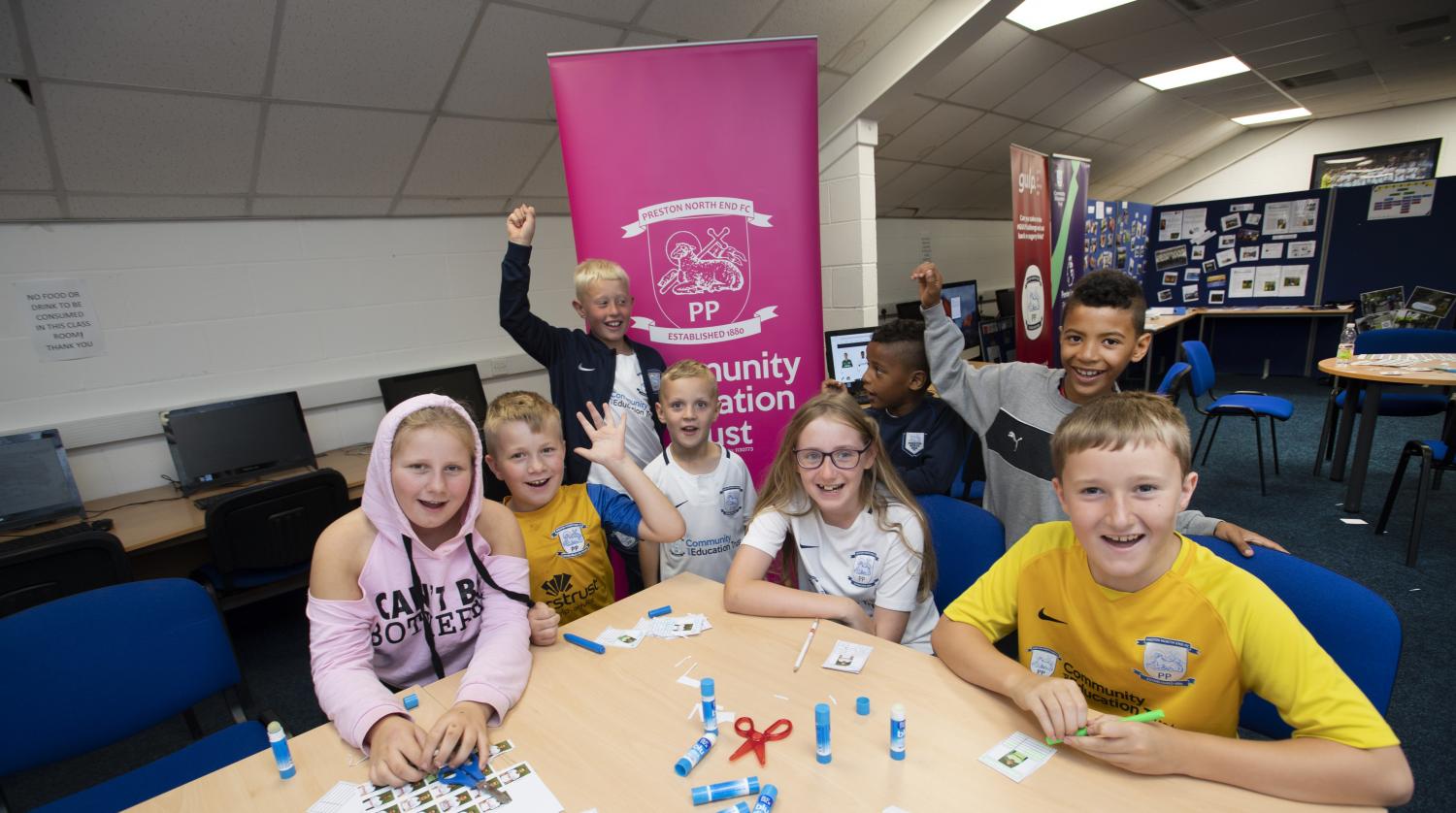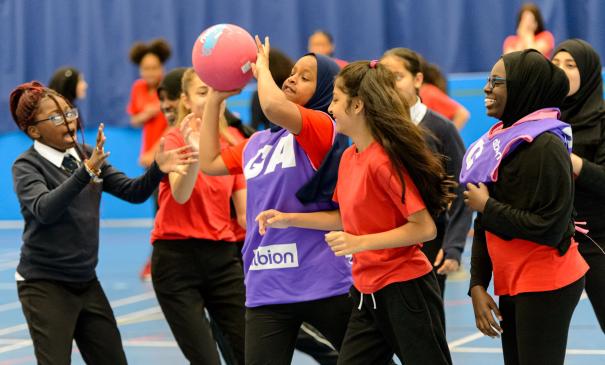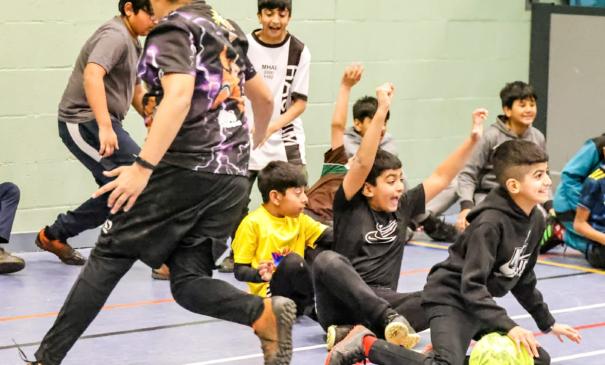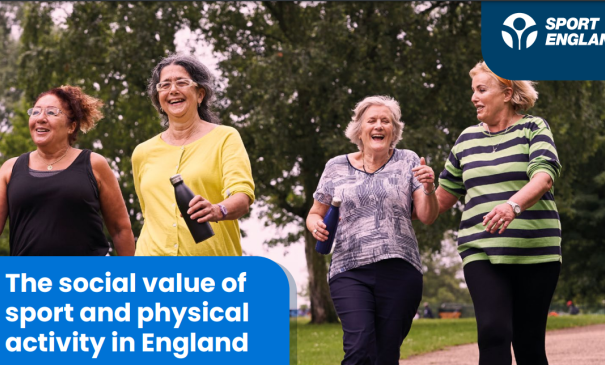Speech by Andy Reed OBE, Chair of the Sport for Development Coalition, to the Coalition's inaugural CEO Forum, November 2021:
 As Chair of the Sport for Development Coalition, I am pleased to formally welcome you to the inaugural Sport for Development Coalition CEO Forum.
As Chair of the Sport for Development Coalition, I am pleased to formally welcome you to the inaugural Sport for Development Coalition CEO Forum.
It is fantastic that we can come together today as a collective, both in person and online, after what has been an extremely challenging 18 months.
Thank you to the team at Greenhouse Sports for hosting us, and to Beatrice in particular, who has provided an extremely valuable start to our dialogue today.
I also want to acknowledge Comic Relief, Laureus Sport for Good, and Sport England, whose support has enabled today to happen, and whose partnership sustains the Coalition’s back-end support team.
Our primary focus today is to assess and set priorities for our collective action as a Coalition aimed at ensuring communities across the UK can fully capitalise on the multiple returns on investment sport for development can offer as a ‘team player’ in building back better and levelling up.
AGENDA
It is in doing this, I am going to suggest it is important that when we reflect on the concepts of ‘Building Back Better’ and ‘Levelling Up’ we consider the meaning of these terms when they start with both upper and lower case letters.
In considering these phrases with an upper case ‘B’ and upper case ‘L’, we are then talking about how sport for development can contribute to the UK Government’s ‘Building Back Better Plan’ and ‘Levelling Up’ Policy Agenda.
In doing this, we can then set out how, as a collective, we can enhance our work with partners and colleagues across Westminster and Whitehall, in devolved and local governments, and in sports councils, on these agendas.
Most notably to evidence, articulate and co-create policy approaches which will enhance the multiple returns on investment and cost savings that sport for development can deliver.
For example, the Coalition’s recent representation to Treasury ahead of the Autumn Budget and Spending Review highlighted the £71.6billion of social value delivered by community sport and physical activity in 2018 in England alone.
ACTION
Our submission highlighted this value was delivered based on just £2.44bn of public sector investment, from a total set of inputs valued at £21.85bn.
The purpose of highlighting these and other figures was not to seek applause, but to call for action.
We know that 48% of adults and young people from less affluent households do not currently enjoy the full benefits that being involved in sport and being physically active can deliver. By increasing those who are active by 500,000 people would deliver a further £1.06bn social value per 2018 figures.
As such, the Coalition’s submission called for sport and physical activity-based social impact and regeneration projects to be included as dedicated themes in future rounds of ‘levelling up’ funding and for ring-fenced investment through the Government’s Plan for Jobs, Plan for Health and Social Care, and Beating Crime Plan.
I imagine in this room and online there are different levels of familiarity with these central Government plans and policy agendas. I wouldn’t expect us to know the details.
CONTRIBUTION
For me, this is the value of us working collectively, as a Coalition, to assess these plans and articulate to Government the contribution sport for development can make at scale.
But it is as equally important that we reflect on the meaning of the terms ‘building back better’ and ‘levelling up’ with a lower case ‘b’ and ‘l’.
And in particular, how to maximise the potential contribution sport for development can make to addressing the inequalities and social challenges exacerbated by Covid-19, both between and within countries, regions and contexts.
This is an issue on which I know there is extensive, deep and place-based expertise in this room and online.

As it is our common mission, the raison d'être for our network, and the golden thread across our collective action.
It is also a point of coherence and convergence between ‘levelling up’ and a wider range of important reference points for our network.
For example:
- the aim in Scotland’s national outcomes framework to “reduce inequalities and give equal importance to social progress…for all people”;
- the central focus on Tackling Inequalities in Sport England’s Uniting the Movement Strategy;
- the mission of the Youth Futures Foundation, who partner with a number of organisations in the Coalition, to create a society where all young people have fair access to good quality jobs; and
- right through to the objective of our hosts Greenhouse to use sport to “break down the barriers that are often associated with growing up in disadvantaged or vulnerable communities”.
These are objectives that I know are shared across the Coalition. They are also objectives that sport for development approaches are uniquely placed to support.
Recent analysis of almost 35,000 participants across seven leading sport for development organisations in the Coalition showed that 64% of participants were from the 30% most deprived areas of the country.
In England, this compares with 32% of people who are classed as active, and 20% of leisure centre users. By comparison, 4.3% of the UK Scout Movement are from the 30% most deprived areas of the country.
POTENTIAL
Beyond these numbers, the unique contribution sport for development can play in ‘levelling up’ is exemplified by the testimonies and case studies regularly received from across the Coalition of the positive social change and impact being delivered by sport for development across the UK. But it is also important to concede that this potential has not yet been fully realised.
So there is more work for us to do.
We need to collate these testimonies, while also aggregating the data that further quantifies the reach, outcomes and impact of our work, and then bring this body of evidence and learning together, beyond the boundaries of individual organisations, networks or monitoring and evolution systems.
- Doing so will enable us to speak in a co-ordinated fashion, and speak at scale.
- Doing so will enable us to speak credibly to policy-makers.
- Doing so will enable us to speak credibly to charitable trusts and foundations.
- Doing so will enable our Coalition, our partners and our potential partners, to better understand, learn from, and articulate the impact of sport for development, at scale, and in ways that are comparable with other sectors.
Agreeing how we build on and advance our collective efforts to share, aggregate and put our data to work for sport for development is therefore also an important objective of our Forum today.
COALITION
I am also going to suggest that our coalition, this Coalition, is best thought of with a lower case ‘c’.
This is because the Sport for Development Coalition is not an organisation in a traditional sense. This is my mission, not growing another organisation.
It is a collective of organisations; a network working together to maximise the positive social change which can be generated through intentionally-designed, and strategically-deployed, sport-based interventions.
Over the past year significant momentum has been generated across this collective.
The number of organisations involved in the Coalition has grown three-fold from just over 50 to more than 200, who together over-arch and support thousands of projects and programmes across the UK.
Nearly 3000 additional followers have joined the Coalition’s social media platforms.
COLLECTIVE
As a collective, it has submitted five reports to national inquiries, policy development processes or spending reviews. These have drawn on the input provided through almost 100 papers, pieces of evidence, case studies or data sets provided to the Coalition back-end team from organisations across the network.
Over 70 organisations are now involved in collective action on monitoring, evaluation and learning through the Coalition Impact Working Group and community of practice.
The Coalition was also invited to be part a national sector partners group alongside Active Partnerships, CIMSPA, Local Government Association, Sport and Recreation Alliance and Youth Sport Trust. This ensures sport for development is part of the wider sector’s coordinated engagement with Government.
Critically this work is directed, managed, and governed by the organisations who make up the Coalition

Over past year the network’s flat and inclusive governance structure has been enhanced. This structure extends well beyond the Coalition Board and includes working groups and steering groups on policy, impact, advocacy, and on policy issues such as employability, and mental health and wellbeing.
I am pleased to announce today we will launch an expression of interest process for organisations who wish to join and contribute to these aspects of the Coalition’s collective action in 2022. This further underscores that the Board is not the Coalition.
In 2020-21 over 70% of Coalition supporter organisations have been involved in collective action activities, with one third involved in the formal governance and management of the network.
This has resulted in our collective being able to speak with a co-ordinated voice and with credibility. The annual survey of organisations in the Coalition showed:
- 92% agreed the Coalition adds value through co-ordinating collective policy advocacy.
- 87% agreed the Coalition’s communication approach encourages collaboration and collective action.
- 85% agreed the Coalition is a credible representative of the sport for development movement.
Building on this feedback, a final important objective for our Forum today is to plan future collective action to help mobilise scaled investment in sport for development, including from business and corporate partners.
COLLABORATION
Our partnership with Made by Sport is an important part of this work.
We have recently reviewed and strengthened our collaboration model, helping to ensure the strengths and assets of the Coalition - a network of organisations - and Made by Sport - a separately governed, corporate-facing entity - are deployed most effectively to help sport for development realise its potential.
Under the leadership of Justin King and Sophie Mason, who is with us today, Made by Sport are driving public campaigning on sport for development while also engaging major brands and leading businesses to demonstrate the value that partnering with sport for development offers.
I am pleased to highlight this partnership will mean there will be opportunities for organisations in the Coalition network to be part of a major print media campaign over the coming months, and that our coalition will be working with Made by Sport in the coming months to bring businesses and public officials together to raise awareness of the multiple returns on investment sport for development can deliver.
CHALLENGES
To conclude, I want to reflect again on the challenges of the last 18 months.
We have faced a generational crisis and experienced substantial health, economic and societal impacts. The most alarming being the widening of deep-rooted inequalities in our society.
The Health Foundation recently published the report stemming from their far-reaching inquiry into Covid-19. It showed unequivocally that young people, those who are less affluent, disabled people, and ethnic and culturally diverse communities have been more affected than others.
In this context, it is essential that all societal assets which can help fight inequality and generate positive social outcomes are mobilised. Sport for development is among these. But we know that in many communities the potential of this asset has not been fully realised.
There is a west African proverb that says in a time of crisis the wise build bridges, the foolish build dams. This is apt guidance for our coalition in working to address this situation.

We must continue to build bridges. Amongst ourselves. But also with Government, Third Sector and corporate partners.
Today’s Forum is a unique opportunity for us to come together as a coalition, and as such is an important platform to direct the future priorities for our collective action.
But it must also be a catalyst for us to redouble our efforts to engage a wider range of experts by experience, diverse leaders and community stakeholders, charities, business, and policy makers well beyond sport for development. In health, education, criminal justice, housing, and community development.
Why?
Because these are all key team players in building back better… in levelling up… in tackling inequalities… in ensuring equal importance is afforded to social progress for all… in breaking down the barriers associated with growing up in disadvantaged and vulnerable communities… and in ensuring young people, all people, have fair access to opportunities.
As, is our coalition.
I look forward to working with you today and in the future on solidifying and enhancing our collective role on this team and in addressing this issue.



